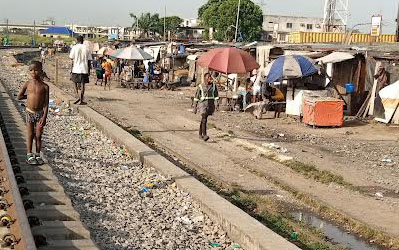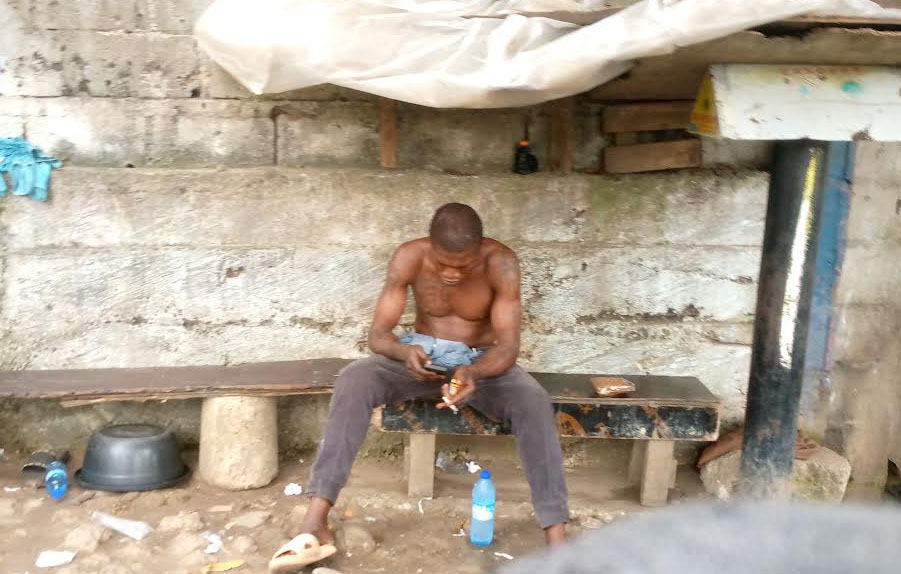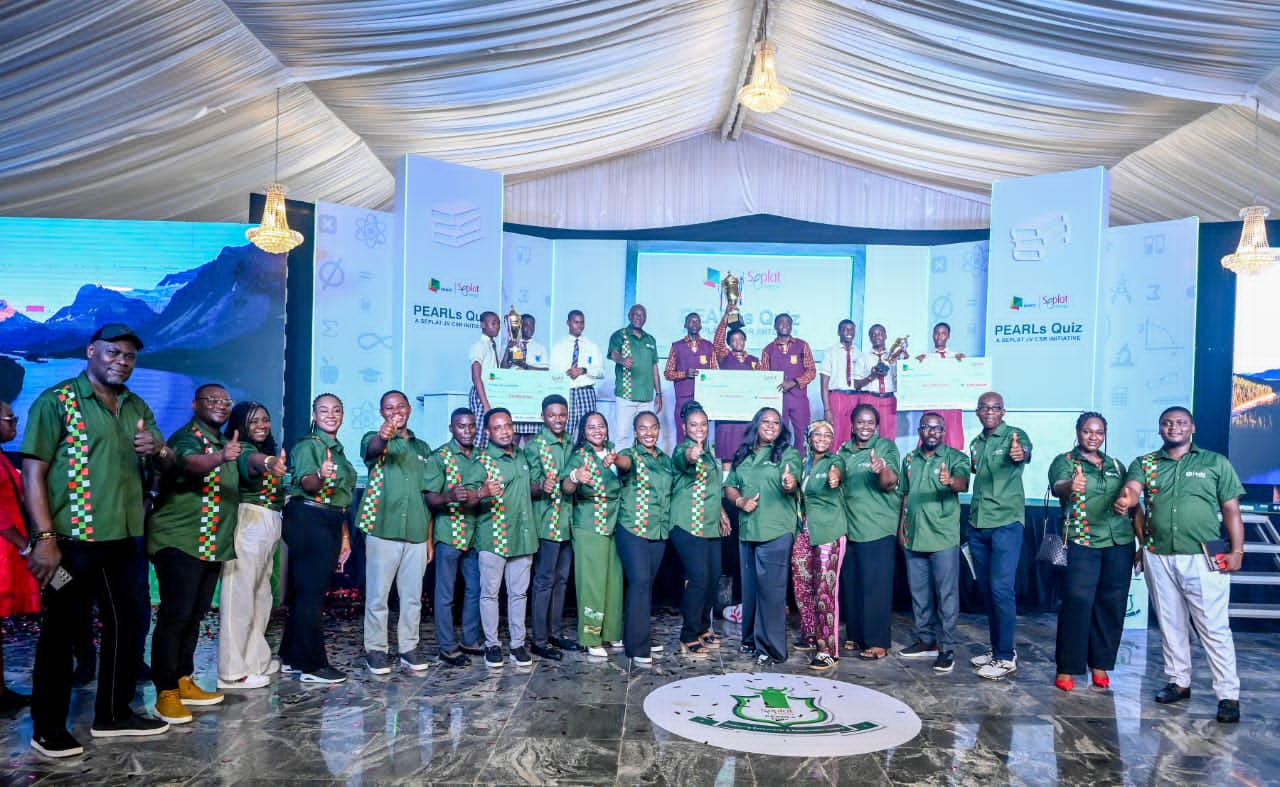
Photos: Ayodele Adeniran and Gbenga Salau
Lagos is a major African financial centre and is the economic hub of Nigeria. Described as the cultural, financial and entertainment capital of Africa, it has had a significant influence on commerce, entertainment, technology, education, politics, tourism, art and fashion in the continent. Lagos is also among the top 10 of the world’s fastest-growing cities and urban areas.
However, the state, in the last few years, has become a disaster waiting to happen. From being a well-regarded city with a vibrant high-street culture, it has become a haven for drug users.
The Chairman, National Drug Law Enforcement Agency (NDLEA), Buba Marwa, recently, revealed that Lagos State has the highest cases of drug abuse in Nigeria.
Marwa, who disclosed this when he paid a courtesy visit to the palace of the Akran of Badagry, Aholu Menu-Toyi I, in Lagos, maintained that with a prevalence of 33 per cent, the state is the highest in the country.
The Guardian gathered that while substance abuse prevalence in Nigeria is 14.8 per cent, the world’s drug abuse prevalence is 5.5 per cent. So, drug abuse prevalence in Nigeria is triple the global figure, which many believe calls for special attention. With the high prevalence in Lagos, it is not surprising to some residents that illicit drugs are not only sold, but also consumed publicly.
Little wonder residents complained about how young men, and sometimes, women, now openly consume and abuse drugs across the state with law enforcement agencies and government unperturbed.
Residents and stakeholders listed the names and alias of some of the drugs these youths abuse to include ‘DSP’ for Codeine, ‘ASP’ for a more powerful brand of Codeine, ‘Reverend Father’ for Revlon tablet, ‘Vegetable’ for marijuana, ‘Gum’, ‘Madara’, ‘Loud’, Tramadol and Colorado.
The NDLEA must be commended for going after illicit drugs syndicates in Lagos, which is reflected in some of its operation in recent times.
For instance, on November 5, 2023, the NDLEA said it seized 14.4m pills of hard drugs valued at N13 billion in Amuwo Odofin and Murtala Muhammed International Airport, Ikeja, Lagos State. It also arrested no fewer than 10 suspects among who were three blind men and a businessman.
The NDLEA Director of Media and Advocacy, Femi Babafemi, disclosed that the tramadol pills and bottles of codeine syrup were discovered following raids of different hideouts of drug cartels in Amuwo Odofin, Surulere, and Skyway Aviation Handling Company warehouse at the Lagos airport in the state.
In a similar operation on Tuesday, October 31, NDLEA operatives swooped on a secret warehouse operated by a billionaire trader in Idumota, Nwaoha Anayo, located at Onitire, Aguda area of Surulere, where 12.7 million of tramadol were recovered.
Similarly, in August 2023, NDLEA seized billions of Naira worth of illicit drugs at a warehouse in International Trade Fair Complex, Lagos.
According to Babafemi, 1.4 million pills of tramadol 225mg weighing 826kgs; 3.2 million pills of codeine with gross weight of 3,360kgs; and 2,841 cartons of codeine syrup containing 284,100 bottles with 28,410 litres of the psychoactive substance, with street value of N4.8b were recovered from the warehouse owned by a wanted drug baron.
The agency then said the busting of the warehouse came on the heels of the arrest of a drug baroness, Faith Ebele Nwankwo, nabbed on August 9, 2023 with 2.75 million pills of tramaking, a brand of tramadol 225mg and 250mg recovered from her residence at House 6, C close, 3rd Avenue, Festac and a warehouse at Plot 3432 Sola Akinsola Street, Divine Estate, Amuwo Odofin, Lagos.

There are many more instances of the NDLEA acting on intelligence leading to the raid of places illicit drugs were stored. Nonetheless these efforts, the NDLEA, as well as government, seems to be lost about checking the growing open abuse of drugs in Lagos neighbourhoods.
From Mushin, which is generally considered notorious for open drug abuse, to Oshodi, Ijora, Oyingbo, and Alaba Rago to Agege and Ajegunle, the public abuse of drugs is not healthy for the society and it seems government and its agency are looking the other way.
Checks by The Guardian revealed multiple spots across Lagos where drugs are openly sold and consumed.
Mushin
For many years now, Akala has become a hotspot for criminal activities, and at the heart of this evil thriving is the sale of hard drugs. This is evident in some of the raids carried out by security agencies in the area.
On May 30, 2013, a combined team of officers of the NDLEA and Nigerian Army raided Akala, resulting in the arrest of 47 suspected drug traffickers and addicts and seizure of 3,166.15kg of narcotics such as cannabis, cocaine, heroin, and methamphetamine.
A week before then, 187.355kg of cannabis was also sized from an illegal warehouse located in the vicinity.
Similarly, on October 7, 2017, the Police, during an enforcement operation around Akala on the directive of the then Police Commissioner, Imohimi Edgal, arrested 50 suspected notorious criminals with 48 bags of illicit drugs.
However, the open abuse of illicit drug in Mushin is not limited to Akala, other spots include, Umoru, Amodu, Ojo, Elegba, Adedoja and Alhaji Lasisi streets.
Lagos Island
There are a number of places on Lagos Island where illicit drugs are publicly abused. They include, Alapatira, Isale Eko, Patey and Idumota. It was gathered that many small hotels and brothels are havens for illicit drugs. Patey Street is alleged to be the most notorious.
Ojo
There are equally places in Ojo Local Council where illicit drugs are publicly abused, but Alaba Rago seems the most notorious. Although Alaba Rago is a popular ram market, over time, it has become a spot for illicit drugs and market.
The Kango section of the market is where most of the abuse takes place, aside from housing the bulk of the brothels and other ‘entertainment facilities’, alcoholic beverages, drugs and banned substances are openly sold and consumed there.
As both old and young binge on narcotics in this section of the market, scantily-clad women of all ages, shapes and forms, with unevenly toned bodies, mostly at night, openly invite male patrons to their rooms.
A testimony to the prevalent of drug consumption in the market was revealed sometime in April 2022, when Rapid Response Squad (RRS) officials of Lagos Police Command intercepted a bus load of illicit drugs at Mile 2.
The police spokesperson in Lagos State, Benjamin Hundeyin, said, in a statement then, that the ‘consignment’ seized was worth N10 million and it belonged to one ‘Alhaji’ and was heading to Mushin from Alaba Rago.

Oshodi/Isolo
Across spots, usually brothels within the council area, illicit drugs are freely consumed. The most scandalous place is the train track under the Oshodi Bridge where drug reeking boys and girls clutch black polythene bags with illicit drugs offering willing buyers their products.
Some residents also point to Yemanje Street around Mafoluku, Oshodi. Illicit drugs are also freely abused in Akinbaye Street and Esa Compound in Isolo area of the council.
Ifelodun Ajeromi
A number of spots within Ajeromi-Ifelodun Local Council are haven for illicit drug, but Ajegunle seems to be the worse. Many brothels across the local council serve as spots for sales and consumption.
In addition to places such as JMJ quarters along Tolu Road, a resident told The Guardian that Maracana Stadium on Tolu Complex was at a point ill-famed for abuse of illicit drugs, but the stadium is wearing a new look and thus migration to other spots has become the order.
Also famed for illicit drug abuse in this council area is Ijora/7up corridor. The exact spot is the train track corridor with a cluster of brothels.
Agege
Although there are many places where drugs are publicly abused in Agege Local Council, Abattoir in Oko-Oba and Akerele Street were identified as renowned.
The consumption and sale of illicit drugs in these three locations are no secret throughout the day. It was gathered that the sale and consumption of banned substance at Akerele Street, along Ipaja Road, in Agege, is similar to what obtains at Akala and Patey.
Alimosho
From Igando to Ikotun, Egbeda to Abesan, there are equally spots where drugs could be openly found being abused, especially marijuana and its variants. One popular location within Abesan Estate is Greenland field area. Other spots include Pipeline and Akinola fields in Aboru area, Pleasure Busstop and the closed Oke Odo dumpsite.
Ikeja
Spots of ill-repute in Ikeja Local Council are the roads around Afrika Shrine. Ironically, it is just some metres away from the Lagos State Secretariat, the state House of Assembly, Governor’s Office and the state Rapid Respond Squad (RRS) headquarters. Although illicit drugs are openly sold and consumed all day, it is more prevalent at night.
Eti-Osa Local Council
From the entrance of Oniru Beach to many unmanned waterfront corridors along the Eti-Osa Local Council, young boys, men and ladies publicly abuse drugs all day, but the volume is more at night where the area becomes a fully red light district.
Mainland Local Council
From Oyingbo to Otto and Otumara Village, there are many scandalous places within Mainland Local Council where drugs are openly offered for sale and consumed. Oyingbo, with a cluster of brothels, is well-noted for illicit drug.

The Oyingbo cluster has a resemblance to Alaba Rago, though it is not within the market. Both old and young binge on narcotics in this section of the state, as scantily-clad women of all ages, shapes and forms, with unevenly toned bodies, mostly at night, openly invite male patrons to their rooms. Some of these ladies have sticks of marijuana or bottles of illicit drugs at hand as they bid for clients.
Surulere
Across Surulere Local Council, there are pockets of places where illicit drugs are sold and consumed and they include, Ogunlana Street, Babs Animashaum and Ojuelegba under bridge corridor.
Amuwo-Odofin Local Council
Church and Agboju busstops along the Mile 2-Badagry Expressway to 7th Avenue Market in FESTAC before it was demolished, many young minds publicly abused drug.
Of note, from findings, is that there is no council area in Lagos that is exempted from the abuse.
Residents who spoke to The Guardian said there are serious implications for this, as underage children, including primary school pupils, who daily see these activities will feel it is the norm. This is more so that many of these spots are within or metres away from residential apartments.
Surprisingly, the state government has a law that banned smoking in public places. It is, however, not enforcing the law. It would be recalled that in 2014, the Lagos State House of Assembly passed the bill “To Provide for the Regulation of Smoking in Public Places in Lagos State and for Connected Purposes’, which was signed by then Lagos State Governor, Babatunde Fashola, a few weeks later.
The law, which comprises 16 sections, outlawed smoking in all public places with penalties for defaulters ranging from N10,000 to N50,000 fines or imprisonment.
But rather than enforcing this law, the state government is building and equipping a 1,500-bed Psychiatric Hospital and Rehabilitation Centre at Majidun in Ketu Ejinrin to help rehabilitate drug addicts.
It is, therefore, not surprising that stakeholders are blaming the state government, especially and council authorities for this negligence, saying government should be more proactive in its attempt to tackle the issue.
The Executive Director, International Organisation For Prevention of Substances Abuse and Crime, Babalola Olakunle, affirmed that the public abuse of illicit drug is of concern to residents. He, nonetheless, said that the best approach to tackling the crisis is adopting the preventive measures.
“How can we get young people not to be involved in it? Some people luckily get into it and are able to get out fast. Some people can easily get out of it fast.
“When we talk about drug prevalence in our country, if anytime alcohol is cheaper than food, then there is a big problem. Alcohol is cheaper in Nigeria than food. You can buy alcohol of N50, but cannot buy food at N50.”
He also suggested preventative measures of talking to children in schools, churches and mosques to understand the negative implications of taking to drugs.
“What is happening now is that marijuana has been classified into different kinds of drugs. There is Colos, Arizona, Loud, SK, all kinds of Indian hemp being used these days. Most are not just ordinary Indian hemp, they are mixed with chemicals and drugs, and it is affecting them negatively.
“If you see some of them when they take Arizona, they can hit their head on the wall because the drug does not allow them to feel any pain. And when they take colos, it looks like the person has epilepsy, because the person would be rolling on the floor.”
He, nevertheless, said that the burden to check the public abuse of illicit drug should not be left to NDLEA alone as it cannot do alone.
Maduegbunam said all stakeholders must work at it including the media. “There is a need to talk more about it on radio and television. It is even affecting our politics; most of our leaders are on drugs, reason they take irrational decisions. It is a malady, a situation that needs to be tackled headlong.”
He insisted that it is important that the law enforcement agency carry out the law, “but because it is prevalent everywhere, how much can they do? So the best thing is prevention and early intervention, telling our children not to get involved.
He maintained that efforts must be geared to get children have informed opinions about drug to help them make informed choice that drugs could affect them negatively mentally and disrupt their future and education, but some get addicted and it becomes a hug problem. Some go back to it after leaving rehabilitation centre.”
Olakunle said though he would not want to hit hard on NDLEA for not going after persons publicly abusing illicit drugs because it is a tough war, he, nonetheless, maintained: “If there are people using drugs openly, the NDLEA should go after them. The moment young people are seeing them taking it publicly they would think it is the norm, so it shouldn’t be allowed.
“Unfortunately, many of our officers are consuming these illicit drugs. And any time a policy is made, it becomes a meal ticket for some officers and people. But there is need for capacity building for security agencies, especially the police so they can understand the danger that are involved. They shouldn’t just do it because they want to make money, they should do it because they have heart for the country and for the young people who are growing up because whatever they see, they copy it.”
He, however, said that the drive now is to give help to those addicted and not to criminalise them.
On his part, After Care Officer, Drug Abuse Preventive, Treatment and Rehabilitation, Pastor Chidi Maduegbunam, noted that the law is there already that all those things are illegal, but it seems the government is not doing anything to enforce its law anymore.
He noted that the consumption of illicit drug is worrisome, disclosing that if a random check on 10 teenagers is done; there is the likelihood that six or seven of them could be on drugs. “It is very alarming,” he maintained.
He observed that owing to the crushing economic situation in the country, people finds solace in using drugs hoping it will help cushion the effect, not knowing it causes more harm.
A resident, Bukola Bassey, sharing her experience said the sale and smoking of illicit drugs is an open secret. “The easy way out is to scream on government to do something, but the effective way out is for all families to call themselves to order. If each family will name and shame their drug traffickers, consumers, educate their children, and discourage risky behaviour; our future will be brighter as a nation.
“All the same, to discourage the shameless consumption of illicit drugs in Lagos, I’ll advocate that Lagos State should go after the big marketers. And then, it should help children at primary and secondary schools before they get hooked on various drugs; show them films of how hard drugs work inside the body and ruin lives.”
Another resident, Opeyemi Olorunyomi, noted that it is crazy how illicit drugs are allowed openly now, observing that security officials, sometimes, patronise the spots.
“Anytime you see officers arresting the seller or the buyer, it is just to extort money from them. The effect of drug abuse is really brutal because underage children are now going into drugs and everyone is seeing it as normal,” Olorunyomi said.
When The Guardian called the Commissioner for Youth and Social Development, Mobolaji Ogunlende, to speak on the issues, he did not pick his calls neither did he respond to the messages sent to his phone via text and whatsapp.

However, NDLEA’s image maker, Babafemi, said the agency’s operation is guided by the policy of drug supply and demand reduction.
“We go after drug sellers, dealers to seize the drugs in their possession to reduce access and availability. That is what we call drug supply reduction. The other aspect, drug demand reduction is about raising awareness on the dangers of abusing illicit substances, going to schools, churches, mosques, market places to educate people and raise awareness about substance abuse,” he said.
He added that for those already abusing drugs, his agency tries to help those willing. “One thing about substance abuse is; if you are not willing to be helped, whatever efforts put in may end up in futility because such person will not submit to the regiment of treatment and instructions.”
Babafemi noted that drug use globally is now seen as a public health, which should not be criminalised, rather those involved should be helped, because there are factors responsible for why they are using drugs.
“And taking care of these people should start from the family. So, their families have the responsibility to seek help for them, so also the religious organisations and communities. Even though our law still criminalises possession, but global organisations are demanding help for these people.
“The NDLEA is doing its own part; the society has its role. In each community, we have landlords and other associations and those who abuse substances are not ghost. For instance, if those selling the substance live in a community, the members of the community have a responsibility to provide NDLEA information so that the persons can be removed from that community.”
“For those using it, since the best global practice is providing help rather than criminalising them, the community has a responsibility to tell young people that such activities cannot be permitted in their community. That is what we call a whole society approach.
“For instance, if the community organises to raid them, NDLEA will most likely not send them to jail instead likely put them on counseling, because when you send them to jail, most of them come out worse. That is why we all need to be involved and not one government agency alone,” Babafemi said.






